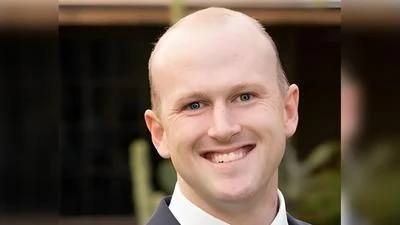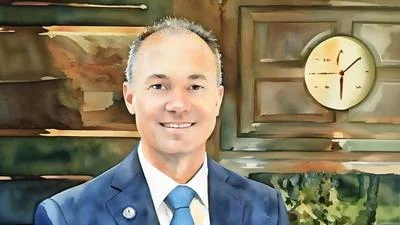America’s challenges in the Middle East are made more complicated at home, where domestic debates sometimes rage over the U.S. relationship with Israel.
The countries maintain close ties based on a tradition of shared values, commitment to Democracy and common faith-based convictions. More and more faith-oriented leaders are engaging the debate to ensure these values remain at the center of the relationship.
One of those leaders is Ralph Reed, among America’s prominent evangelical political activists. He has long been a force in the conservative movement, bursting onto the national stage in the 1980s as the youthful director of the Christian Coalition. He played a role in shaping the 1994 Republican Revolution. Reed later founded the Faith and Freedom Coalition and currently heads the public policy firm Century Strategies.
Reed’s early political awakening, he says, stemmed from a childhood of reading and fascination with historical figures. “I was a voracious reader, a very precocious and inquisitive boy,” he recalls. “By 9 or 10, I was reading 500-page biographies of great leaders,” including Lincoln, Roosevelt, and Franklin.
His passion for politics took hold after realizing that leaders could “change the course of human events,” and he began to see politics as the most powerful force for shaping the world.
Reed has a long relationship with Donald Trump, which began before Trump’s first presidential campaign. “He came to our conference in 2011… no staff, no handlers,” Reed says. That moment stood out as a sign that Trump was different. Reed recalls Trump telling him directly, “I hate what’s happening to our country.”
From that point forward, the two men developed a close friendship. “Trump ended up winning the evangelical vote by a higher margin than anybody in American political history,” Reed says. He believes Trump’s presidency marked a historic shift in support for Israel.
According to Reed, “Trump is the most pro-Israel president in American history.” He lists Trump’s accomplishments, including Israeli sovereignty over the Golan Heights, and changing U.S. policy on Jewish settlements. “These were huge policy changes,” he says. “It flowed from personnel… Jason Greenblatt, Jared Kushner, David Friedman—every one of these guys were swinging big bats.”
Recently, Reed co-founded the Conference of Presidents of Christian Organizations Supporting Israel and led its inaugural delegation to Jerusalem. The group met with Prime Minister Netanyahu, cabinet ministers, Knesset members, and senior military officials. “It was hard not to feel like I was in the war rooms with Winston Churchill,” Reed says. “I was meeting with one of the great men in the history of Israel.”
But the main threat on Reed’s mind is Iran. “We have now reached the end of the road,” he says, describing the regime as a terrorist sponsor and nuclear threat that’s been “at war with the United States and Israel since 1979.”
He traces the danger through decades of violence—from the Beirut barracks bombing to Iran’s role in the Iraq War—and criticizes successive administrations for failing to act decisively. “We have kicked the can down the road about as far as we can,” Reed warns. “They are on the precipice of being a nuclear power” and adds, “That cannot happen.”
Reed shares a striking anecdote from the Trump White House: “Trump told me after his first national security briefing, they went around the globe and the common denominator in nearly every trouble spot was Iran.”
Reed says Trump took this seriously and believes if he had remained in office, his maximum pressure campaign on Iran would have continued. “The sanctions were working,” Reed says. “Iran was producing 750,000 barrels of oil a day–now it’s 3.5 million.” The increase, he argues, is funding Iran’s terrorist apparatus.
In his view, Trump’s return to power signals another turning point. According to Reed, Trump sent a letter to the Ayatollah and said, ‘You either dismantle this program and remove it from the country, or I’m going to have to act.’ Reed recounts. He points to Trump’s recent social media post warning that “the real pain is yet to come for both the Houthis and their sponsors in Iran.”
In Reed’s view, the media has failed to grasp the gravity of the situation. “There were over 300 direct attacks on U.S. naval vessels or aircraft by the Houthis, the most since World War II,” he says. Iran’s role in supplying and training proxies, according to him, is clear. “If it doesn’t stop, it’s going to be dealt with—and it won’t just be dealt with in Yemen.”
In the Middle East, according to Reed, strength is the only common language. “There’s really only one thing they understand, and that’s power and force,” he says. “If you are not willing to use it, you will not be taken seriously in that region.”
As Reed describes it, the U.S. is approaching a defining moment on par with the most important inflections in the Twentieth Century. “This is a Churchill-FDR moment,” he says. “It’s a Reagan-Thatcher moment, and it’s going to require clarity, courage, and action.”









